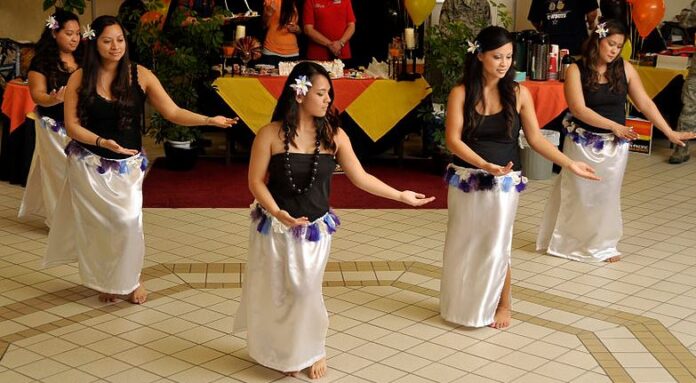Hula dancing may be more than just a performance. It may be able to stimulate the brain and help prevent Alzheimer’s and other dementia.
The Honolulu Star Advertiser reports that the University of Hawaii is researching whether hula, along with other lifestyle interventions, can improve brain functions for Native Hawaiians and Pacific Islanders at risk of neurological disorder.
“We’re hoping hula itself will be a cognitive exercise because they have to learn the (Hawaiian ) language, memorize songs and chants, and do complex movements, ” said the project’s lead, Joseph Keawe ‘aimoku Kaholokula. “Social and cognitive engagement has also been shown to actually help people in reducing their risks for dementia in the future.”
This is the first time Native populations are being included in this type of project from the National Institute for Aging, according to University of Hawaii News.
The project is funded with a $15 million grant from the NIA and is part of the broader project known as the Natives Engaged in Alzheimer’s Research.
“We are returning to the traditions of our ancestors to provide the solutions needed to address the most pressing health concerns of our communities today,” said Joseph Keaweʻaimoku Kaholokula, chair and professor of the Department of Native Hawaiian Health at JABSOM, and lead for the Hawaiʻi-based project.
Native Hawaiian, Pacific Islander, American Indian and Alaska Native communities are more prone to conditions such as hypertension, type 2 diabetes and low socioeconomic status that make dementia more likely. However, there’s not much information about how these communities are impacted by Alzheimer’s nor how it can be prevented.
“We know that for the conditions of the heart, hula has great potential. And vascular disease is one of the risk factors for Alzheimer’s,” said Mele Look, co-investigator of the ʻIke Kupuna Project at JABSOM.
Washington State University is partnering with the University of Hawaii at Mānoa John A. Burns School of Medicine for the study, according to Hawaii Public Radio.
“They’re (Native Hawaiians, Pacific Islanders, American Indians and Alaska Natives) more likely to be stressed by working multiple jobs, to stressing over housing costs in Hawaiʻi, to choices of foods, to availability of physical activity options. There may not be sidewalks where they live so walking isn’t feasible, or there’s no access to parks or other open areas,” Look said to Hawaii Public Radio.
Recruitment for more than 200 participants is expected next spring.
AsAmNews has Asian America in its heart. We’re an all-volunteer effort of dedicated staff and interns. Check out our new Instagram account. Go to our Twitter feed and Facebook page for more content. Please consider interning, joining our staff, or submitting a story or making a contribution.


